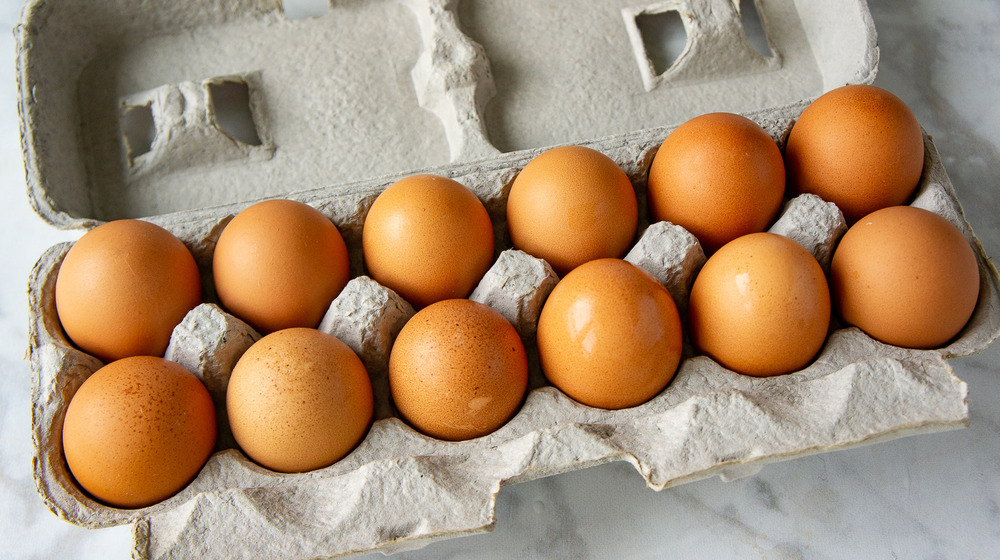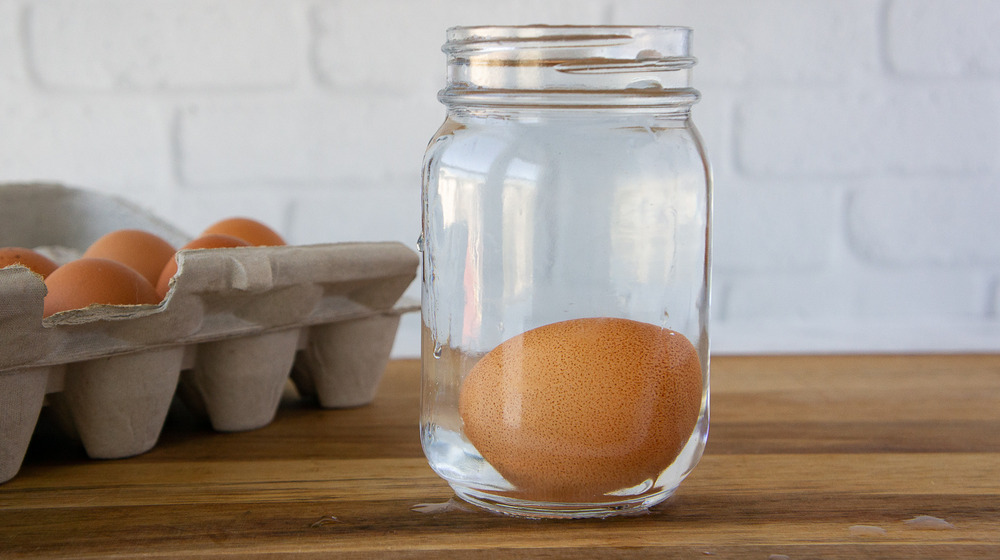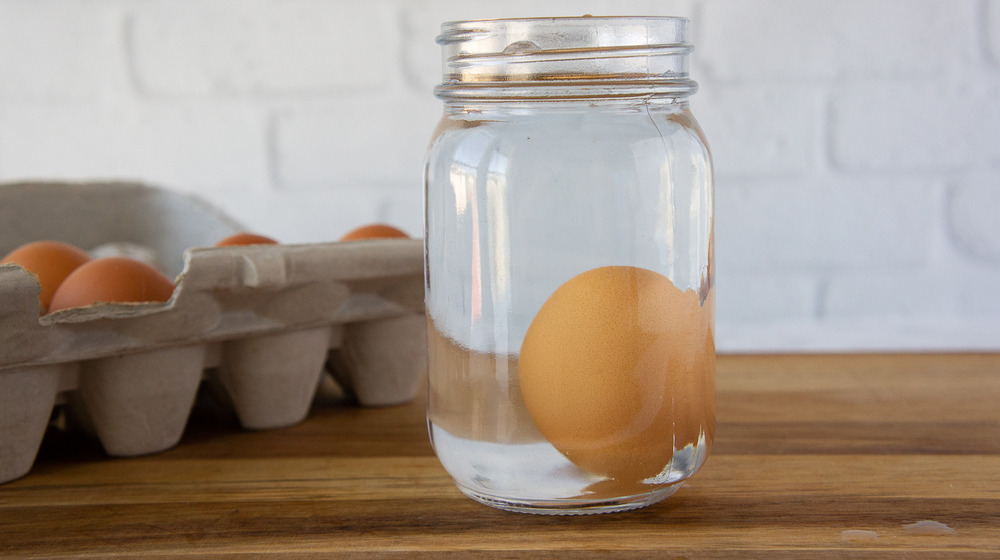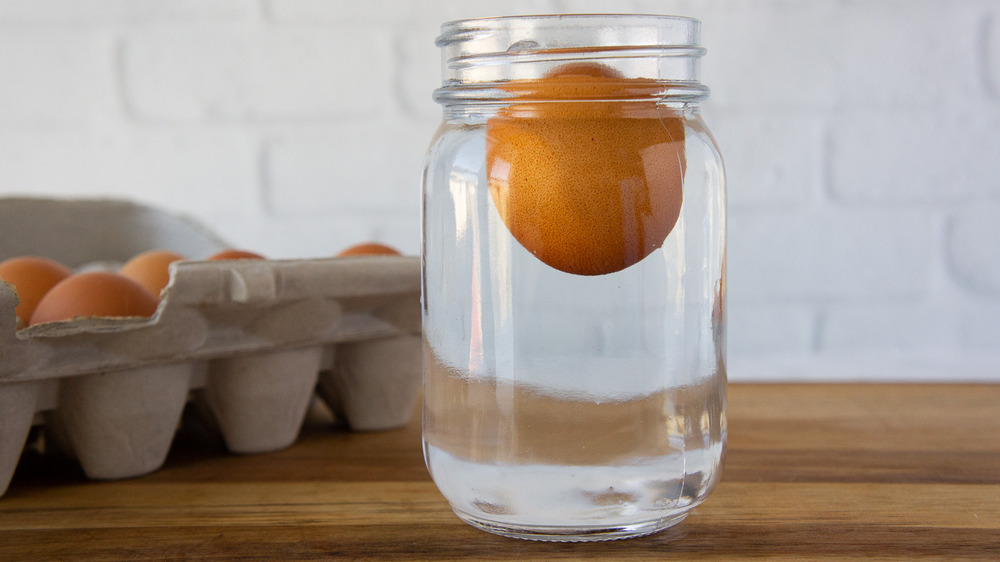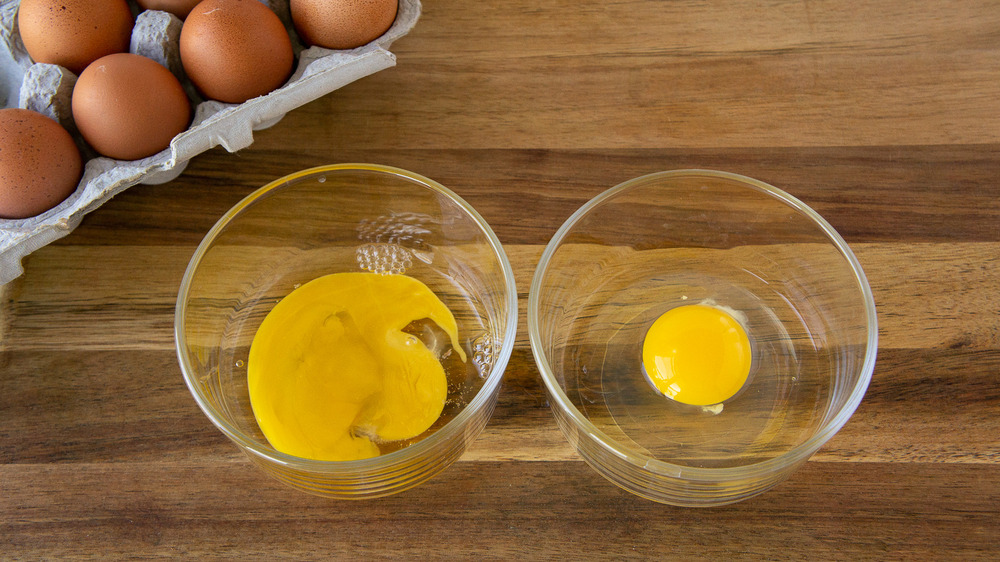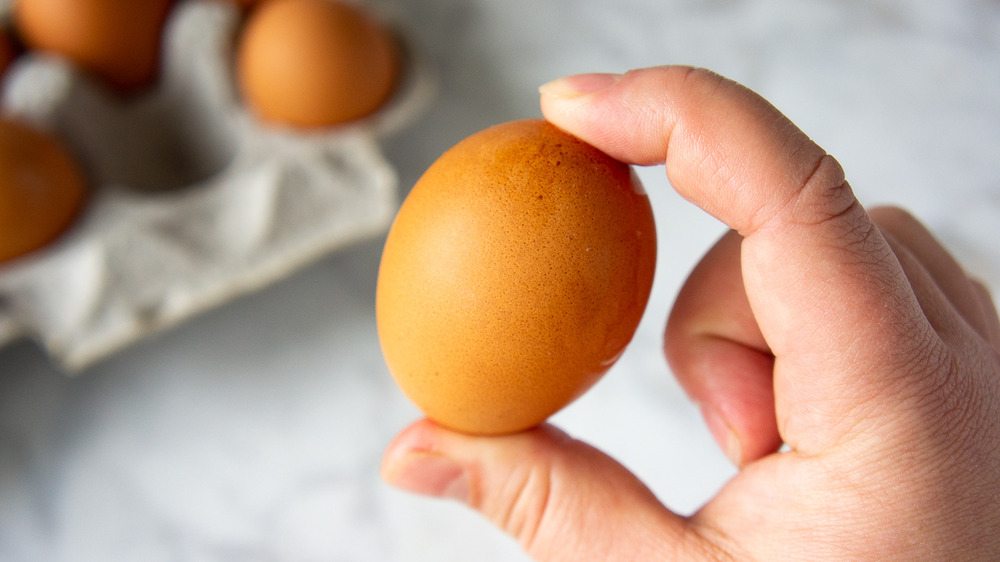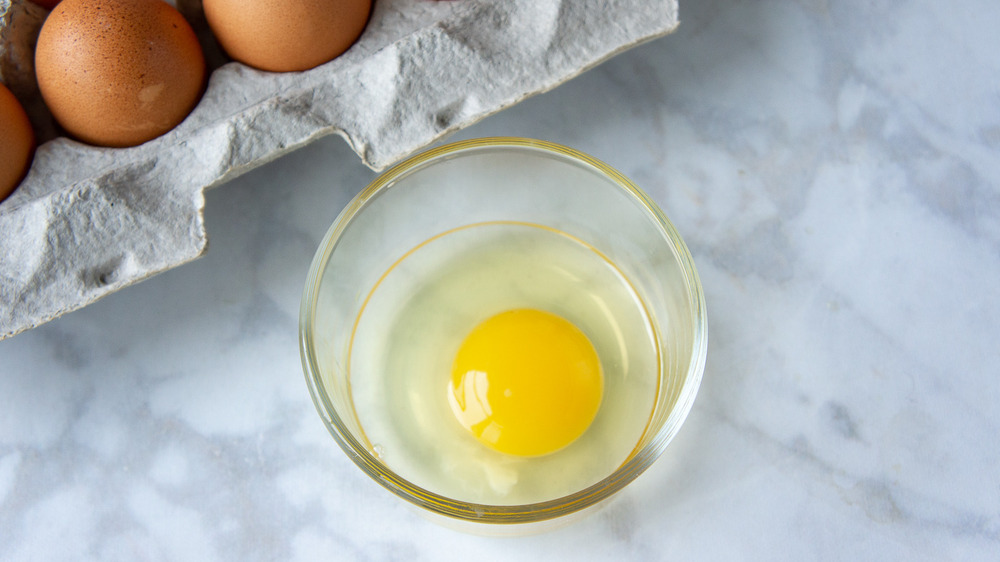How To Tell If Eggs Are Still Good
There's nothing more frustrating than getting halfway through a recipe only to realize that the eggs in your fridge are a week past their best by date. But before you chuck them in the garbage can and scrap the whole recipe, wait! That best-by date is not an expiration date, but rather an indication that eggs are at their best quality if consumed before then. Many eggs are actually just fine for a good while after that date. In fact, hard-boiled eggs are easier to peel if the eggs are not as fresh!
The good news is that there are a few very simple and very quick ways, to tell if your eggs are bad or old. So, instead of letting that printed date tell you what to do, try a quick test instead. Chances are good that you'll thank us for saving your next batch of cookies.
Get more cooking tips and recipes from Mikayla on her blog The Flour Handprint.
Why and how the float test works for eggs
The float test is a common and very easy way to check the age of your eggs before you start cooking with them. You will literally need only a bowl or jar of cool tap water. That's it, really.
To test your eggs, first gently drop one into the bowl.
As an egg ages, the small pocket of air that naturally exists inside it will start to expand. When an egg is fresh, that air pocket is small enough that the rest of the egg's contents make it heavy. That means that a fresh egg simply sinks to the bottom of the bowl and lays on its side.
What if the egg stands on one end?
If the egg is a bit older and that air pocket has had time to grow, then your eggs will have just enough air to stand on one end. These eggs are not as fresh as they could be, but are likely just fine to eat.
But once that egg starts to float...
As that air pocket gets bigger and bigger with the egg's age, it will eventually cause your egg to float on the top of the bowl of water instead of sinking.
These are the oldest eggs, and honestly, you're probably better off chucking them into the trash at this point. Seriously, these are some old eggs. But, before you do that, we have to tell you the whole truth about how to tell if your eggs are okay to use.
Don't ignore your nose and eyes when checking eggs
If you've got a floating egg but really want to make that batch of cookies, let's be extra sure that it's actually bad. The best way to be absolutely sure an egg is good or bad is to crack it open.
Your eyes and sense of smell are your best allies when it comes to detecting egg freshness. After all, not all bad eggs will necessarily float. If your eggs have been exposed to extreme temperature changes (perhaps they spent some time in a freezer or were left near an oven while it was on), they may be spoiled, but can still sink to the bottom of the bowl. Remember, it's only the growing air pocket that makes them float!
Instead, simply crack it into a bowl. The white should appear clear and hold some shape, and the yolk should be some shade of yellow (this exact shade can vary and largely depends on what the chicken ate). If the white is very watery, looks cloudy, or the yolk is discolored, it's best not to risk it.
Truly bad eggs have a pretty distinct smell. Odds are good that, if you have a rotten egg, you'll know. Even un-cracked, raw eggs can smell rotten! If the egg smells even slightly off, trust your nose and chuck it.
What about the egg shake test?
If you've heard that a quick shake of the egg will tip you off, let us clarify. The shake test is another great indicator of age, but it's not necessarily accurate for determining spoilage.
If you shake fresh eggs, which are likely to have those tiny air pockets, you won't feel or hear any movement inside the shell. However, if you give an older egg a shake, you'll likely feel and hear some sloshing — more so as the egg ages. However, there are some important details to remember here. In all our tests, even older eggs that sank still sloshed a bit in their shell, so this is really only a good test if you're after the freshest of the fresh, like for eggs Benedict.
So can floating eggs be eaten or what?
The answer is no... and yes. Eggs, especially the local farm fresh ones, take a really long time to reach that floating point. The odds are that, if you have floaters, the shell was damaged or the egg is really old. It may be fine to eat or use in your baking, but only your nose and eyes can really answer that.
We tend to err on the side of caution around here. Ultimately, if an egg floats, don't eat it. If it smells or looks suspicious, don't eat it.
Saving an egg is just not worth the illnesses that can come from consuming spoiled food. And, of course, always, always make sure you're using proper food safety with raw animal products even if you've got an ultra-fresh egg. That includes washing your hands throughout the process.
Recipe Card
You've got everything ready to go for your next baked treat, but now you're taking a second look at those eggs. How can you tell if eggs are good to use?
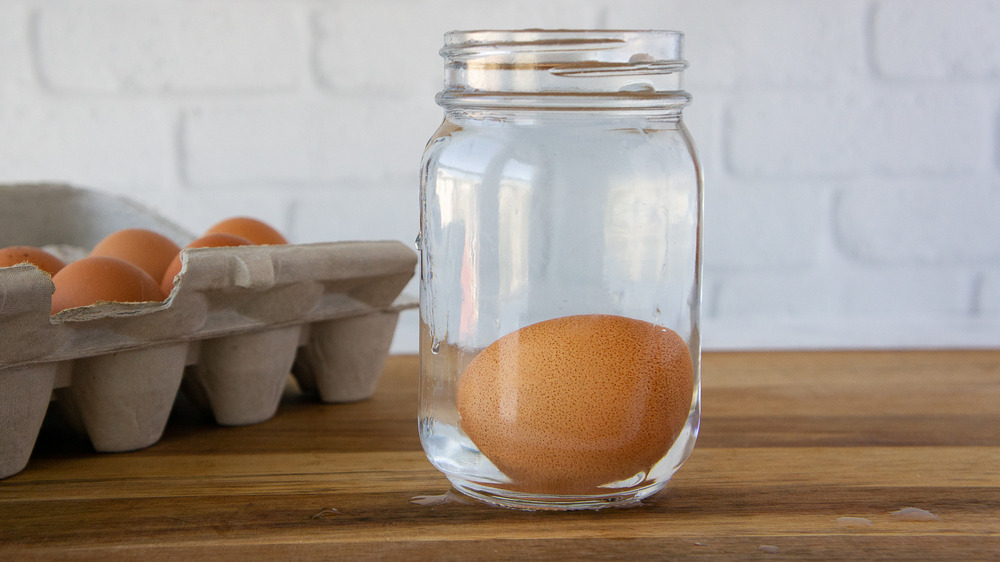
Ingredients
- Eggs
- Water
- Bowl
Directions
- Fill a bowl with cool tap water.
- Gently drop the egg into the water.
- It if sinks and lays on one side, it's very fresh.
- If it stands on one end, the egg is getting older.
- If it floats, it's very old, and you may wish to discard it.
- Alternatively, crack an egg into an empty bowl and examine the sight and smell. If it smells off, the white is cloudy or watery, or the yolk is discolored, throw it away.
- To perform the shake test for freshness, simply shake the egg gently. If it sloshes, the egg is older. If it does not, it's very fresh.
